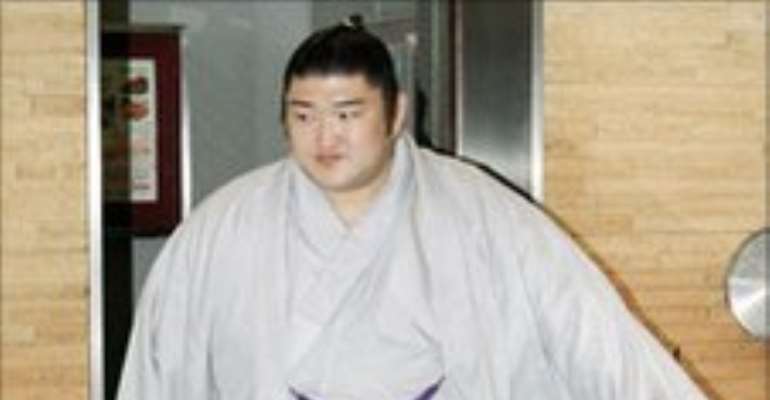JAPAN BROADCASTER HALTS SUMO COVERAGE OVER SCANDAL

Japan's state broadcaster says it will not show the next sumo tournament live because of a gambling scandal that has engulfed the sport.
It is the first time NHK has not shown a tournament live in over 50 years.
The decision comes two days after sumo authorities dismissed a top wrestler and coach from the sport.
The two had admitted being involved in illegal betting on baseball – an alleged source of funding for Japan's “yakuza” gangsters.
Dozens of members of the sumo establishment have been caught up in the scandal.
In a survey last month by the Japan Sumo Association (JSA), 65 of its 700 members admitted involvement in illegal gambling on baseball, cards, mahjong and other games.
It is the latest in a series of scandals to hit the sumo world – which traditionally demands high standards of behaviour and ethics from its wrestlers.
'Severe opinions'
Government-run NHK has televised each of the six annual sumo tournaments since 1953.
But it said it would not transmit live broadcasts of the Nagoya tournament, which runs from 11-25 July, because of a flood of complaints from viewers.
It will instead show a delayed and shortened highlights programme each day.
“This is a very significant and regrettable issue,” NHK chairman Shigeo Fukuchi said. “We have received very severe opinions from our viewers every day.”
A number of sponsors had already pulled out from the tournament over the scandal.
On Sunday the JSA dismissed a top wrestler, Kotomitsuki, and a coach, Otake, from the sport over the scandal.
The JSA chairman, Musashigawa, has also agreed to step aside temporarily in favour of a sumo outsider, former top prosecutor Hiroyoshi Murayama.
More than 10 others wrestlers who were also implicated were suspended from the Nagoya tournament.
The BBC's Roland Buerk, in Tokyo, says that sumo had already been damaged by earlier revelations of the sport's connections to the underworld.
It emerged that prize front-row tickets to last year's Nagoya tournament had found their way into the hands of members of the Yamaguchi-gumi, Japan's biggest crime syndicate.
The gangsters wanted to be visible in television broadcasts to cheer up their colleagues watching from prison cells, our correspondent says.
Other scandals have already seen the reputation of the sumo world, which is beset by recruitment problems, plummet.
Last year, a leading sumo coach was jailed for his role in the fatal beating of a young wrestler in an attack that exposed the issue of bullying within the sport.
And earlier this year top wrestler Asashoryu announced his retirement following allegations he attacked a man outside a Tokyo nightclub.
Sumo wrestlers and their trainers traditionally use only one name.
